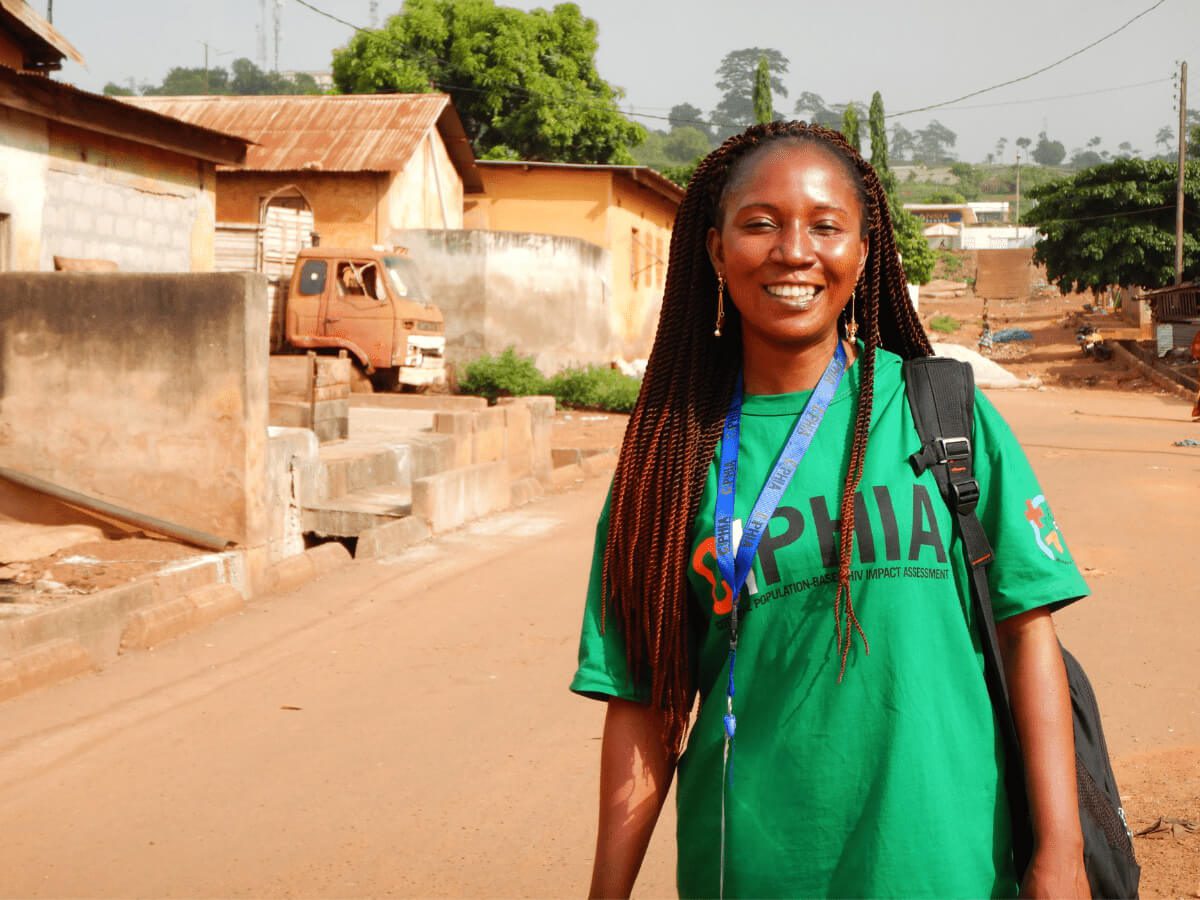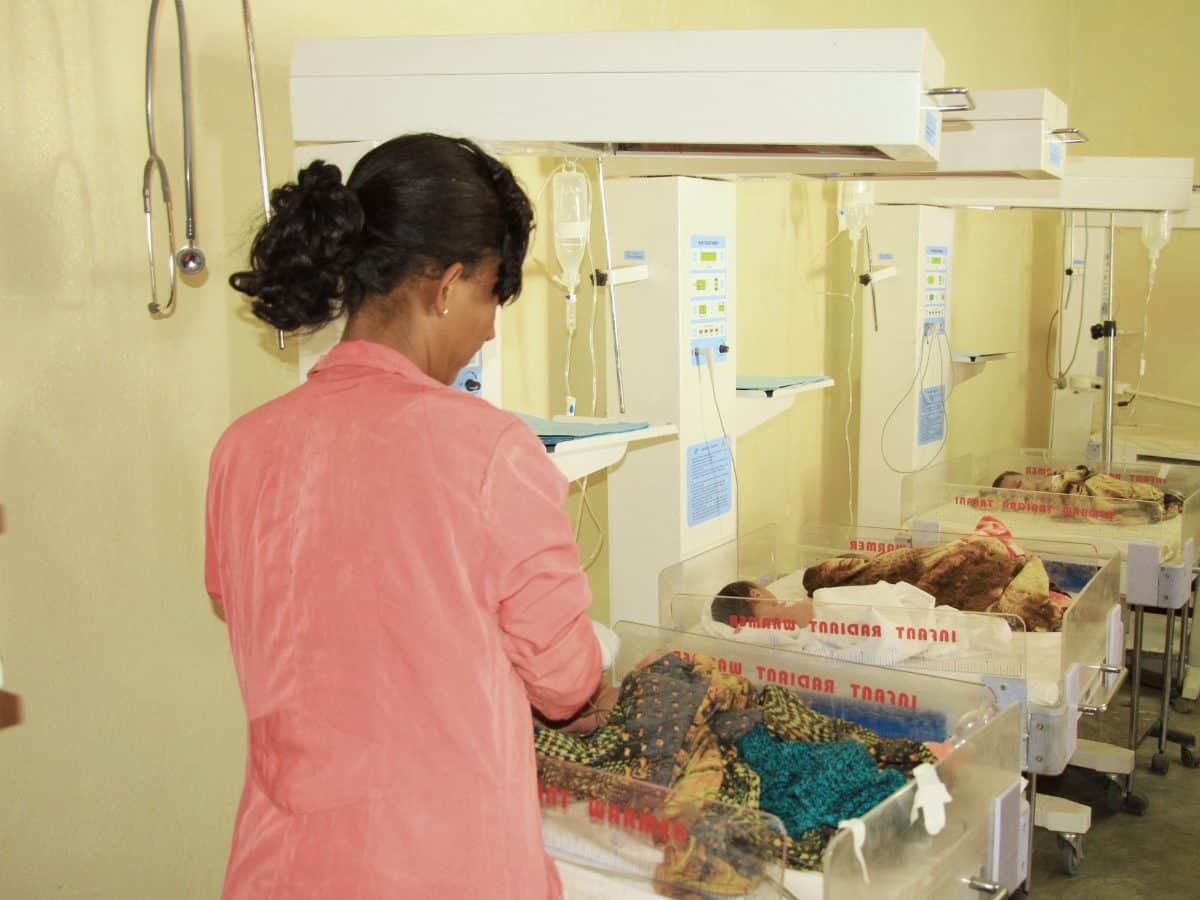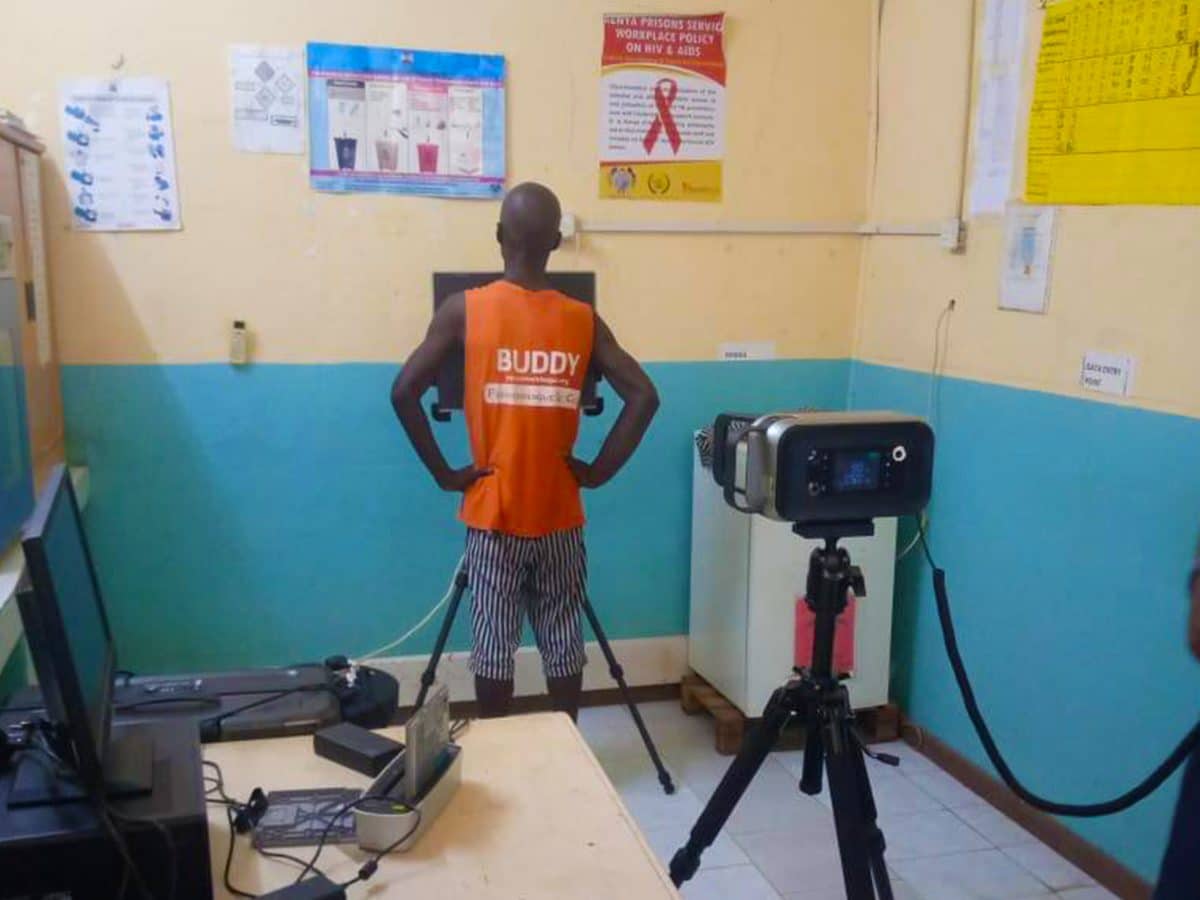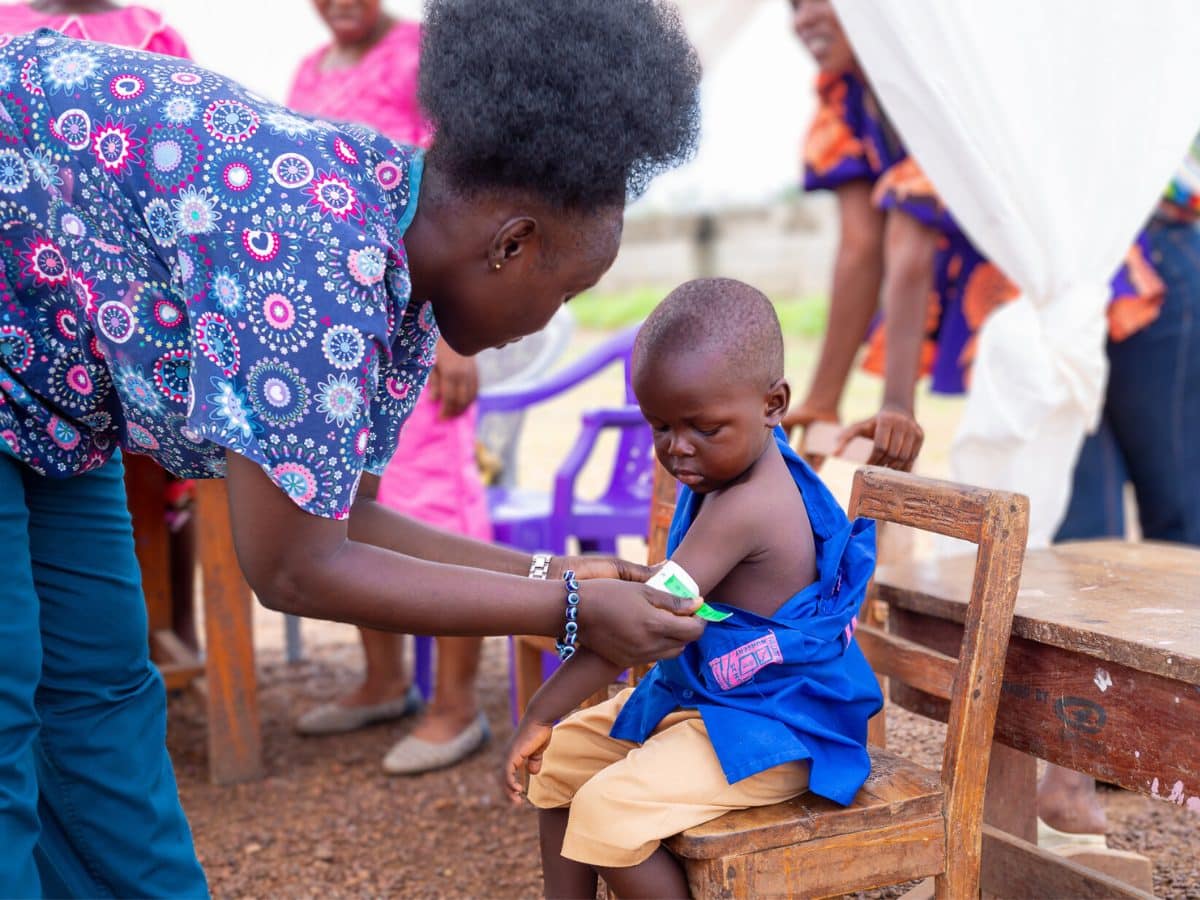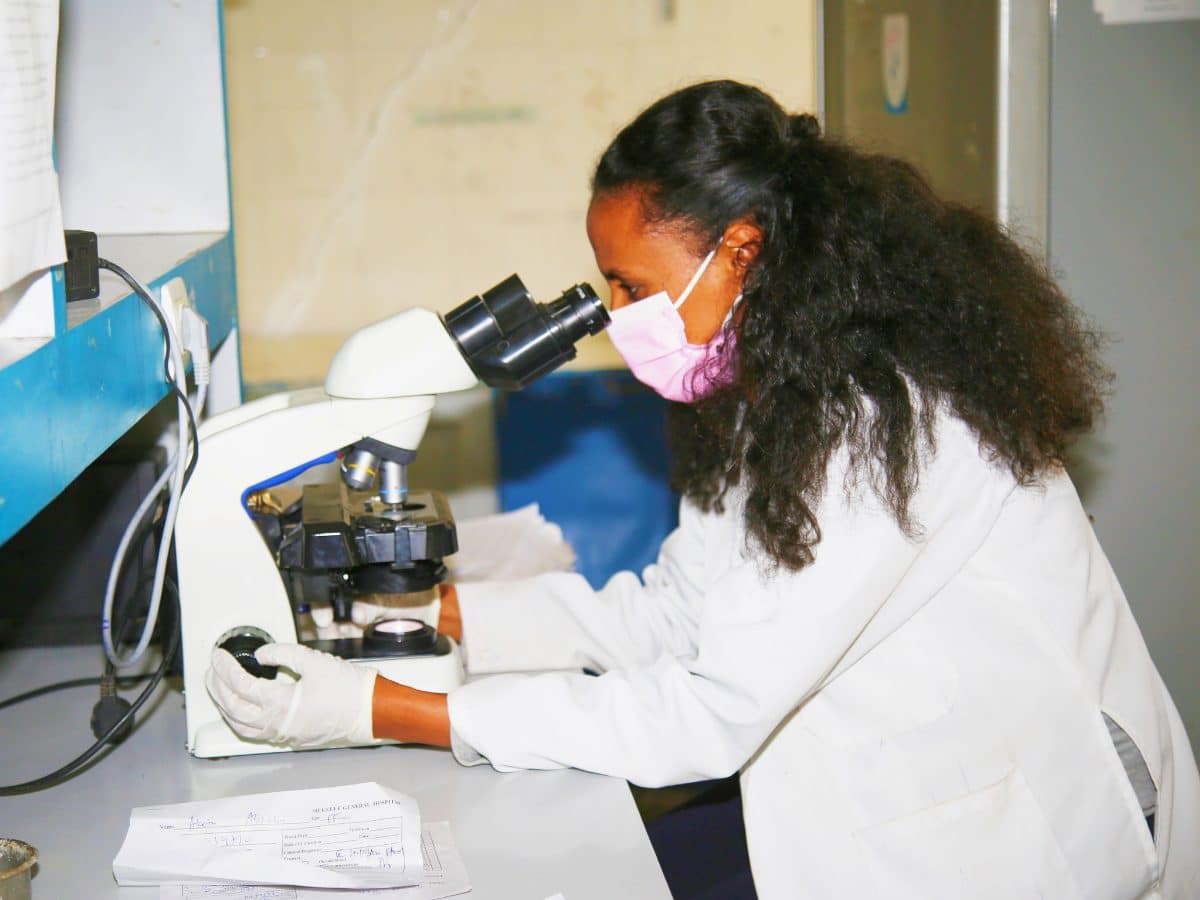In 2024, ICAP at Columbia University, in collaboration with national and local partners, will be supporting three new Population-based HIV Impact Assessment (PHIA) surveys – in Cameroon, Côte d’Ivoire, and the Democratic Republic of the Congo (DRC).
Supported by the U.S. President’s Emergency Plan for AIDS Relief (PEPFAR) through the Centers for Disease Control and Prevention (CDC), ICAP will work with key national institutions to provide technical assistance in all three countries to support data collection systems, laboratory infrastructure, and strengthen in-country capacity to design, conduct, and analyze PHIA surveys.
Each survey will offer participants household-based HIV counseling and testing with immediate return of HIV test results. Based on the test results, participants are referred to HIV prevention or care and treatment services. The combination of home and laboratory-based blood tests allows estimation of HIV prevalence, HIV incidence, and rates of HIV viral load suppression, ultimately providing keen insight into country progress toward reaching the UNAIDS 95-95-95 target goals.
“The PHIA surveys have proven to be an important tool in guiding the global HIV response,” said Wafaa El-Sadr, MD, MPH, MPA, ICAP global director. “The two new surveys in Cameroon and Côte d’Ivoire will provide information on how these two countries have progressed in their HIV response, while a first survey in DRC promises to help provide critical information for the country’s ongoing HIV-related efforts.”
The DRC PHIA – the Congo Démocratique Population-based HIV Impact Assessment (CODPHIA) – will be implemented in three provinces, Kinshasa, Lualaba, and Haut-Katanga, and aim to reach nearly 12,000 households. These three provinces account for half of all people living with HIV on antiretroviral treatment in the country and were among the first to integrate HIV/AIDS control activities.
“CODPHIA has been eagerly awaited in DRC,” said Stéphania Koblavi, PharmD, PhD, country director for ICAP in DRC. “This survey will provide more precise information on the number of people living with HIV, on treatment, and with suppressed viral loads.”
In Cameroon, for the Cameroon Population-based HIV Impact Assessment (CAMPHIA) in 2024, the goal is to reach 25,000 households across all regions of the country, with the findings to build on the results of the first CAMPHIA in 2017-2018.
The Côte d’Ivoire Population-based HIV Impact Assessment (CIPHIA) in 2024 will aim to reach nearly 14,000 households and approximately 25,500 eligible adults, with findings to build on the first survey in the country, the Côte d’Ivoire Population-based HIV Impact Assessment (2017-2018).
“Supporting the second PHIA survey in Côte d’Ivoire will provide the opportunity to measure progress that has occurred since the first survey in 2018,” said Hermann Brou, project director of CIPHIA 2017-2018 and CIPHIA 2024, and acting country director for ICAP in Côte d’Ivoire, “as well as assess gaps that remain. We are excited about the partnership with the Ministry of Health in this second PHIA and look forward to the work ahead.”
With the inclusion of these new surveys, ICAP will have supported PHIA surveys in 16 countries, with many already having conducted a second or third PHIA.
About ICAP
A major global health organization that has been improving public health in countries around the world for two decades, ICAP works to transform the health of populations through innovation, science, and global collaboration. Based at Columbia Mailman School of Public Health, ICAP has projects in more than 40 countries, working side-by-side with ministries of health and local governmental, non-governmental, academic, and community partners to confront some of the world’s greatest health challenges. Through evidence-informed programs, meaningful research, tailored technical assistance, effective training and education programs, and rigorous surveillance to measure and evaluate the impact of public health interventions, ICAP aims to realize a global vision of healthy people, empowered communities, and thriving societies. Online at icap.columbia.edu


